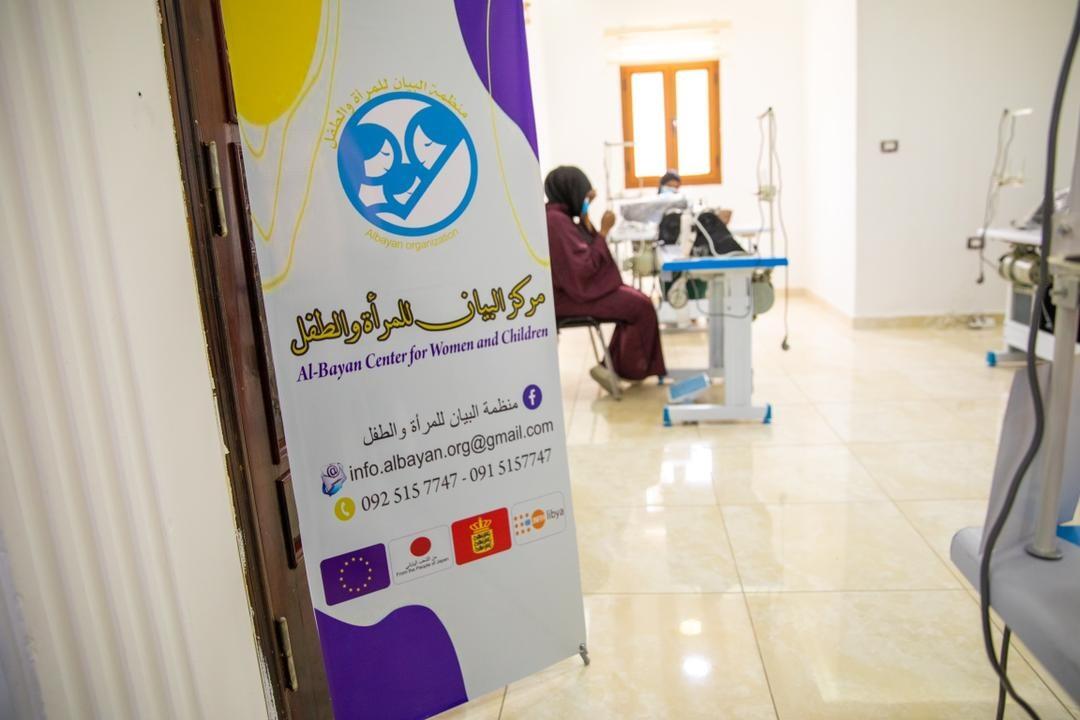Tripoli, 5 July 2021: UNFPA through its partner Al Bayan has inaugurated its 4th Women and Girls Safe Space (WGSS) Center here in Gurgi, Tripoli. The event was attended by many migrant women and girls, UNFPA staff, partners, and host communities. The safe spaces provide psychosocial support and counseling services, awareness raising along with livelihood and life skills training to women and girls including most vulnerable women headed households, people with disability and migrants in Libya.
“Our WGSS centers have been developed according to international guiding principles and provide state of the art facilities to our staff and beneficiaries. Hosting 200 beneficiaries a week, the center is the largest of all four centers we have in Libya. It is situated at a very strategic location and will provide much needed support to vulnerable women in the host community, refugees and migrants in the region.” Said Ahlam Sofan, GBV Programme Specialist UNFPA on the occasion.
The ongoing armed conflict, protracted instability, and COVID-19 pandemic have disproportionately impacted the lives of women and girls in Libya, resulting in increased cases of domestic violence and other forms of gender-based violence. The lack of specialized services for GBV survivors, and the lack of trust in existing health services further aggravates the situation. UNFPA’s WGSS function as entry points to detect cases of survivors of gender-based violence and have proved instrumental in providing support and specialized services especially to women from most vulnerable segments.
Already, UNFPA through its three Women and Girls Safe Spaces (WGSS) located in Tripoli, Sabha and Benghazi provided gender-based violence prevention and response services, reaching over 13,000 vulnerable women and girls with psychosocial support services, livelihood and life skills training and awareness sessions on gender-related topics.
Speaking on the occasion, the participants appreciated the opening of the WGSS terming it another milestone for women in Libya. They specially thanked the generous support of European Union, Governments of Japan, and Denmark to materialize the idea of protecting women and girls in Libya.


